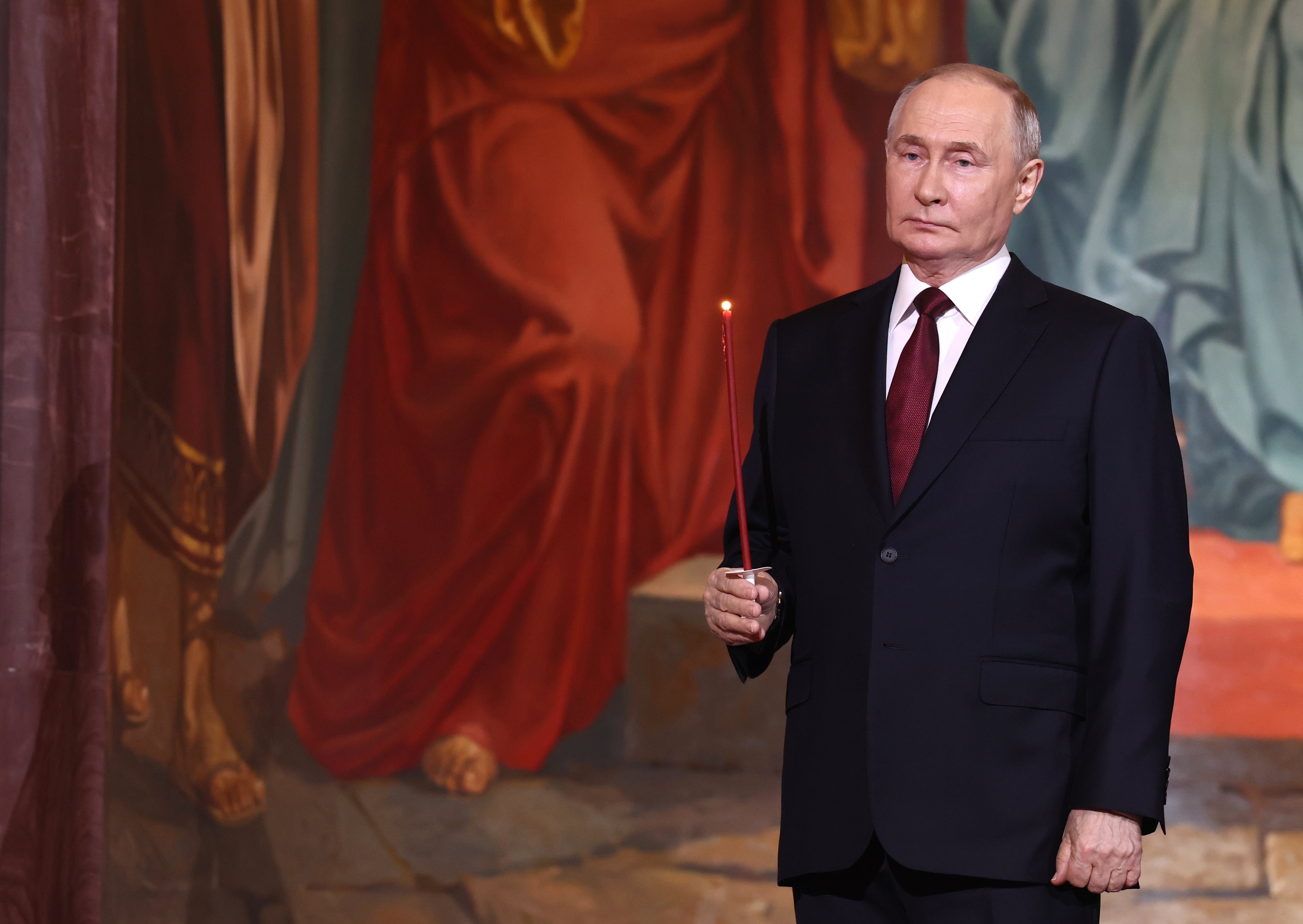US, UK and EU nations boycott Putin’s inauguration for fifth presidential term
Russian leader starts new six-year term as his military ramps up war in Ukraine
Your support helps us to tell the story
From reproductive rights to climate change to Big Tech, The Independent is on the ground when the story is developing. Whether it's investigating the financials of Elon Musk's pro-Trump PAC or producing our latest documentary, 'The A Word', which shines a light on the American women fighting for reproductive rights, we know how important it is to parse out the facts from the messaging.
At such a critical moment in US history, we need reporters on the ground. Your donation allows us to keep sending journalists to speak to both sides of the story.
The Independent is trusted by Americans across the entire political spectrum. And unlike many other quality news outlets, we choose not to lock Americans out of our reporting and analysis with paywalls. We believe quality journalism should be available to everyone, paid for by those who can afford it.
Your support makes all the difference.The UK, US and most European Union nations boycotted the inauguration ceremony of Vladimir Putin’s fifth term as Russia’s president following an election that they rejected for allegedly lacking legitimacy.
Mr Putin walked down the red carpet at Moscow’s Kremlin Palace, the seat of the Russian government, in a choreographed ceremony that marked the beginning of another six years in power. The Russian leader, who has been in power for 25 years, won the last election riding on popular support for his prosecution of Moscow’s ongoing war in Ukraine.
The US denounced Mr Putin’s re-election as “undemocratic” and boycotted the inauguration. "No, we will not have a representative at his inauguration," Matthew Miller, a spokesperson for the US State Department, said. "We certainly did not consider that election free and fair, but he is the president of Russia and he is going to continue in that capacity."
Mr Putin won a landslide victory in the 15 March election in which he did not face a serious challenger. He took more than 87 per cent of the vote, but the result was widely rejected in the West with the European parliament passing a resolution in April to denounce the election as a “sham”.
The British foreign ministry also did not send a representative to Mr Putin’s inauguration. “Russia’s assault on Ukraine is an unprovoked, premeditated and barbaric attack against a sovereign democratic state," a ministry spokesperson said. "The UK condemns the Russian government’s reprehensible actions which are an egregious violation of international law and the UN Charter."
Canada stayed away as well.

The EU said its ambassador to Russia would not attend the ceremony in keeping with the stance of most of its member states.
A European diplomat said 20 EU member states would boycott the inauguration, but seven were expected to send a representative, including France, Hungary and Slovakia.
While the Western powers have sought to isolate Moscow since it invaded Ukraine over two years ago, they have seen an internal rift develop over their divergent approaches to dealing with the Russian leader.
French ambassador Pierre Levy is expected to attend the ceremony after president Emmanuel Macron held talks with Chinese president Xi Jinping where the European leader said that “we are not at war with Russia”.
However, France’s relations with Russia have deteriorated over the war in Ukraine. Just last week, Mr Macron hinted at the possibility of sending French troops to Ukraine. He said if Russian forces broke through Ukrainian frontlines it would be legitimate to consider a likely request by Kyiv to send support.
The Baltic states, which no longer have envoys in Moscow, ruled out the possibility of attending the ceremony.
“We believe that the isolation of Russia, and especially of its criminal leader, must be continued,” Lithuania’s foreign minister Gabrielius Landsbergis said. “Participation in Putin‘s inauguration is not acceptable for Lithuania. Our priority remains support for Ukraine and its people fighting against Russian aggression.”
The Ukrainian foreign ministry said the ceremony was designed to create “the illusion of legality for the nearly lifelong stay in power of a person who has turned the Russian Federation into an aggressor state and the ruling regime into a dictatorship”.
“Ukraine sees no legal grounds for recognising him as the democratically elected and legitimate president of the Russian Federation,” the ministry said in a statement.

Join our commenting forum
Join thought-provoking conversations, follow other Independent readers and see their replies
Comments